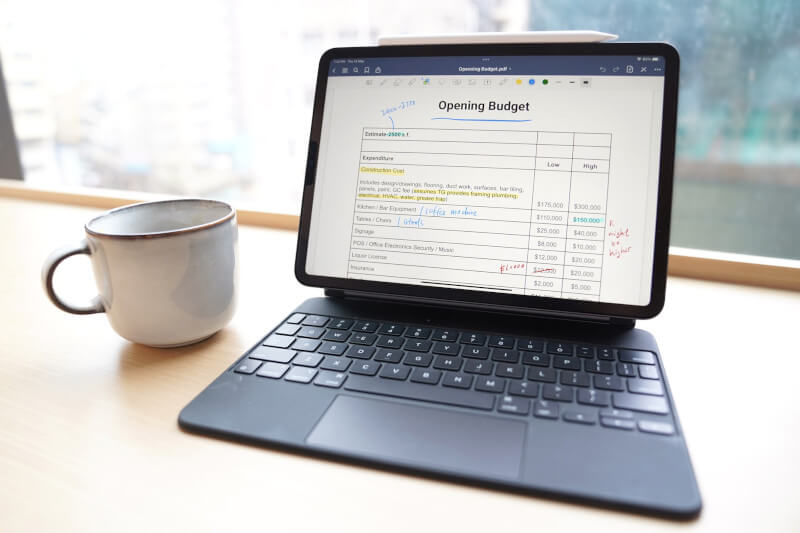With an expanding production company, managing money and making a profit has become increasingly intricate and crucial tasks. Is your accountant’s explanation of the key performance indicators for your company leaving you more bewildered than before?
Your accountant is probably taking advantage of the reality that your knowledge resides in production rather than accounting if they are unable to answer your inquiries clearly or avoid engaging in conversation altogether.
The production environment is more cutthroat than ever, and your accountant probably has more on his or her plate than just filing quarterly taxes. To succeed in today’s world, creative minds must broaden their education far beyond their areas of competence. To help with what can seem like an insurmountable challenge, we’ve compiled this handy reference guide to accounting terms and how they pertain to your business.
Money Made VS. Money Spent
Cash flow and sustainability are two separate but related concepts, and this is especially true for organisations in the creative and service industries.
Take this as an illustration: The one hundred thousand dollars from the business loan are deposited into Production Company A’s bank account. It’s used for things like rent and utilities, but also for things like new computers and expansions. The corporation owes the lender R 1.9 million even though it is already in the bank. In other words, it’s not profitable yet, it does help the company’s cash flow.
Now, let’s look at an illustration: Production An agency client pays a Company B R 960 000 per month in arrears (i.e. after the services have been rendered). Although the business has earned R 960 000, there are currently insufficient funds to complete the project. Even if a business is highly profitable, it will still require a steady stream of revenue to keep the doors open.
The Impact of Tax Breaks on Planning Expenses

Understanding and taking advantage of tax benefits is another important part of commercial accounting in the film industry. Many nations and states provide financial incentives to the film industry. A movie’s budget and bottom line may be drastically affected by these incentives. They can cover a sizable chunk of production costs and typically take the form of tax credits, rebates, or exemptions. Accountants need to understand these incentives and how to use them to the production’s advantage. They must also watch for any deviations from the rules and regulations set forth by these incentives, which could have an impact on things like where to set up shop, how employees are selected, and how money is categorised.
Cheque The Book Register
Do your pupils dilate when your accountant presents you with the company’s balance sheet? That’s understandable, given the frightening nature of balance sheets. The information contained in your balance statement is as follows:
- How well the current financial year has been going for your company?
- The length of time your company has been able to consistently turn a profit since its founding is reflected in its equity.
- What is owed to and held by the business, as well as debts owed by the business?
- If there are mistakes in your balance sheet, you should review it. Without regularly reviewing the balance sheet with the accounting profession and asking for clarification on all accounts, fraudulent activity or inaccurate income statements may go undiscovered.
The Basics of Film Production Budgeting and Cost Management
Budgeting and controlling costs are of paramount importance in the film industry. The budget for a film includes everything from the pay of the cast and crew to the cost of sets and locations, post-production fees, and advertising. The feasibility of a product is decided by the estimate, which sets the financial tone for the entire manufacturing process. Comparing actual expenditures against planned sums is at the heart of what is meant by “cost control.” Cost overruns in filmmaking are a serious problem that, if unchecked, can spell financial ruin for the entire production. To make sure they are still on track, it is crucial for commercial accounting to review and revise the budget based on actual costs frequently.
Budgeting and Projections in the Film Industry

Finally, commercial accounting in the film industry also includes financial reporting and forecasting. Accurate financial reports give stakeholders a comprehensive picture of the film’s financial health and help them make educated decisions. This includes reports on production costs, income, and cash flow. Simultaneously, financial forecasting helps the production business plan and make strategic decisions by estimating future revenue and expenses.
Due to the high risk and potentially high reward nature of film investments, this is especially important in the film industry. A film’s earnings from ticket sales, distribution arrangements, streaming rights, and other sources can more than makeup for its high production expenditures in the beginning. An astute production accountant will do more than just record transactions; they will also assist in making predictions about the company’s financial future.
Liabilities and Assets
Payables (or accounts payable) are the polar opposite of receivables (or accounts receivable). Your firm has payables, which are the bills it must pay to other suppliers, and receivables, which are the invoices it must be paid to operate.
You may learn a lot about your company’s financial health by looking at its accounts payable and accounts overdue. You may need to plan carefully around cash flow in the coming weeks if you’ve got R1.9 million in the bank and R 1 906 000 in accounts payable owing. If, on the other hand, you have R 19 200 in the bank but R 1 906 000 in accounts receivable that are past due, you have a temporary problem that, with any luck, will be resolved soon.
To effectively manage your cash flow, you must have a thorough understanding of your accounts payable and accounts receivable, as well as any anticipated expenses or unbilled revenues.
You can take the next step towards handling the company’s end of things in a way that safeguards your creativity by using these ideas and using them to empower the business choices you make as a production firm. With a strong, well-informed business plan, will secure your company’s financial future.
The Balance Sheets Aren’t That Intimidating
Don’t be intimidated by production accounting or balance sheets. They’re necessities for running a successful manufacturing company. It allows you to focus on the long-term success of the business.
